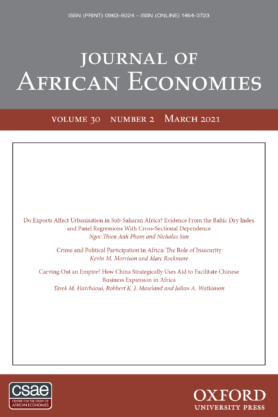This paper explores the relationship between tax rates and tax evasion in a low-income country context: Ethiopia. By using transaction-level administrative trade data, the authors are able to provide an analysis that is largely comparable with the rest of the literature while also introducing two important innovations.
First, they compare the elasticity of evasion to statutory tax rates and effective tax rates (ETRs). Most studies in the literature so far focused on the former. They show that ETRs are the most relevant parameter to explain evasion in contexts where exemptions are widespread, which results in a large divergence between ETRs and the statutory rates set out in the law.
Second, the authors account for trade costs more precisely than the previous literature by adjusting the trade gap rather than controlling for proxies. They argue that this new approach to accounting for trade costs is superior to those previously adopted in the literature.
